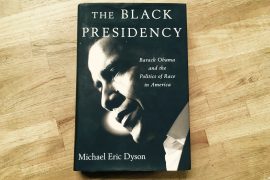
Do All Americans Live Like “Time is Money”?
Washingtonians hurry all the time. It’s the same in big cities like Miami, Chicago, and Los Angeles. New York is famously known as “the city that never sleeps.” After 3 years of living in the States, I’ve changed my view of the American idea that time is money. Hispanic Americans, or people living outside of these big cities set a different pace of life.
After moving to the States, I soon got used to the vibrant life in Washington, DC. Our fitness club opens at 5:30am and closes at 10:30pm. The stores are open seven days a week, and I can shop for grocery until midnight at my local Giant.
Since living here, my time has become a scarce commodity. I’ve always had a strong work ethic, and my pace in Germany as a Working Mum was also intense. But, it’s worse here. According to a OECD study, in 2015 Americans worked an average of 419 more hours per year than Germans and 308 more hours than the French.
In American business, time is almost considered a currency. In May 2015, I wrote in this post:
“Thanks to new technology, the currency of “time” becomes negotiable. American life is measured by the exact minute. The idea is to sub-contract the less important tasks so you can focus on the essentials. Postmates and Shyp will pick up your packages at home and send them for you. I can hire an assistant online at Fancy Hands and Tasks Everyday to find a birthday gift for my husband or renegotiate my cellphone contract. To empty and store our recent moving boxes, I could call someone through Taskrabbit or Agent Anything.”
Do all Americans live like “Time is Money”?
After living on the East Coast and hearing about the West Coast, I realized they’re the same. West Coast fashion may be more casual, but punctuality and “time is money” are still dominant in their way of life.
In contrast, I’ve discovered a different pace of life during road trips in the United States. In Lexington, KY—a city with over 300,000 inhabitant—many shops close much earlier. Starbucks downtown closes at 5:30pm, and so does the hair salon that messed up my color. Traffic starts earlier, but by 6:00pm, everything is quiet outside.
The smaller the cities, the more relaxed life is. Does that mean small American cities are like European countries? No, I wouldn’t say so. In the US, for example, grocery stores and shopping malls are still open late into the night, while call centers work 24/7.
Why are Americans so stressed?
The notion that time is money can’t only be explained by greed. The real motivation is having a sense of accomplishment, wanting success, and being rewarded for your efforts. To many people, money represents success. Americans talk about their expensive house or Mercedes, wear expensive brand-name clothing, and travel in first class because they want to demonstrate how successful they are, not to brag about money.
I won’t go into the history of how the United States was founded, but it involved the blood, sweat, and tears of early colonists and pioneers. Their living and survival conditions were particularly difficult, and only the shrewdest, most perseverant survived. In today’s world, the same perspective has become “work hard, and your efforts will pay off.”
Big cities are more competitive
Busyness doesn’t only happen in Washington or other large American cities. In the world’s metropoles, people often rush. They run to catch a bus or metro, racing to be on time for a meeting or appointment.
A long time ago, people focused on surviving in a harsh new country with extreme weather and other dangers. Today, New Yorkers, Parisians, and Berliners race against the clock. As a result, many Americans are masters of time management and time optimization.
In Washington, people spend weekends by playing sports, socializing at brunches or BBQs, going to church, driving their children around, and going shopping. As I see them running from A to B, I must confess that Saturdays look pretty much the same in my family.
The Hispanic exception
Please don’t forget that the US has a mix of 330 million people with different races and heritages.
According to a survey from the think tank PEW Hispanic, among the 17.6% of Hispanic Americans, “47% consider themselves to be very different from the typical American.”
PEW Hispanic states that:
“Most Hispanics do not see a shared common culture among U.S. Hispanics. Nearly seven-in-ten (69%) say Hispanics in the U.S. have many different cultures, while 29% say Hispanics in the U.S. share a common culture.”
Last Saturday, my husband waited for his 2:00pm appointment with our Bolivian handyman. Erik didn’t show up.Three days later, he still hasn’t called to apologize or reschedule. This has been his pattern in working on our home since 2013. I know this won’t be the last time.
Foto credit:
– Featured picture http://TaxCredits.net
– foto above by masson




